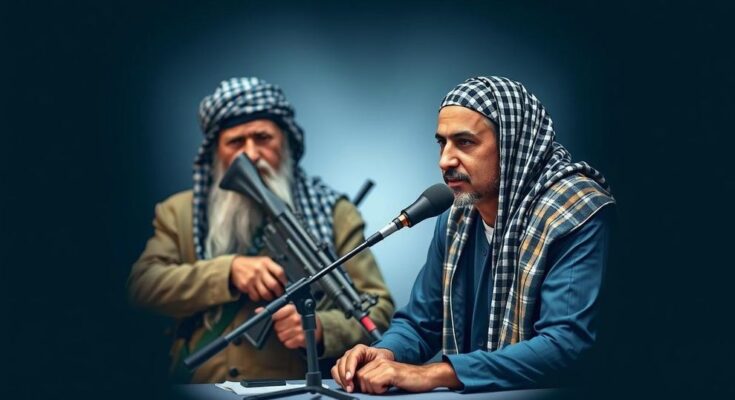UNAMA has condemned the Taliban’s recent public execution in Paktia Province as a violation of human rights, calling for an end to such acts and emphasizing the need for legal reforms. This execution, witnessed by a crowd and overseen by senior officials, is indicative of a troubling resurgence in public punishments since the Taliban ascended to power. Additionally, new court directives that restrict testimony based on beard length further raise concerns about the fairness of legal proceedings in Afghanistan.
In a grave manifestation of authority and law, the Taliban recently executed a man in Paktia Province, prompting the United Nations Assistance Mission in Afghanistan (UNAMA) to raise its voice in stark opposition. On November 13, the mission released a statement condemning this act as a blatant infringement of global human rights regulations. UNAMA’s call for an immediate halt to public executions reflects a broader plea for Afghanistan to honor its international commitments to justice—especially the principles of due process and legal representation. Witnessed by a large crowd in Gardez, the execution of Mohammad Ayaz Asad—found guilty of murder and executed under the watchful eyes of senior officials including Interior Minister Sirajuddin Haqqani—highlights a disturbing resurgence of public punishments in the country. Since the Taliban’s return to power in August 2021, reports suggest that at least 176 public executions have taken place, coupled with various other forms of corporal punishment like lashings and stonings, igniting a fervent backlash from human rights activists. On a troubling note, the Taliban court in Balkh has put forth a directive that prevents men with short beards from testifying in legal proceedings, mandating that witnesses sport beards at least a fist’s length long. This policy not only signifies a troubling restriction on the legal system but also raises alarms about the diminished fairness in judicial processes, as court officials are now tasked with measuring beard lengths before allowing testimonies. Amidst these developments, Afghan citizens, alongside human rights advocates, have expressed profound indignation over the Taliban’s harsh regime. One activist lamented, “The Taliban are committing severe abuses against the people of Afghanistan,” echoing a sentiment felt by many who question the priorities of a regime that resorts to public executions in sports stadiums instead of addressing pressing issues like education and women’s employment. The shadow of strict interpretations of Sharia law looms large, intensifying calls for international scrutiny and accountability.
The backdrop of this condemnation lies in a complex history of Afghanistan’s struggle with human rights since the Taliban regained control in 2021. The Taliban’s interpretation of Islamic law has brought about severe restrictions on personal freedoms and rights, particularly for women and minorities. Amidst these changes, public punishments have surged, reflecting a strict enforcement of their laws that disregard international human rights obligations. The reintroduction of public executions and other brutal methods indicates a significant setback for justice and legal reform in Afghanistan.
The recent public execution by the Taliban exemplifies a devastating trend in Afghanistan that threatens both human rights and judicial fairness. The outcry from UNAMA emphasizes a crucial need for immediate reform and adherence to international human rights standards. As citizens express their outrage over these draconian measures, the global community’s attention becomes increasingly vital in holding the Taliban accountable for its actions and protecting the rights of the Afghan people.
Original Source: shiawaves.com



